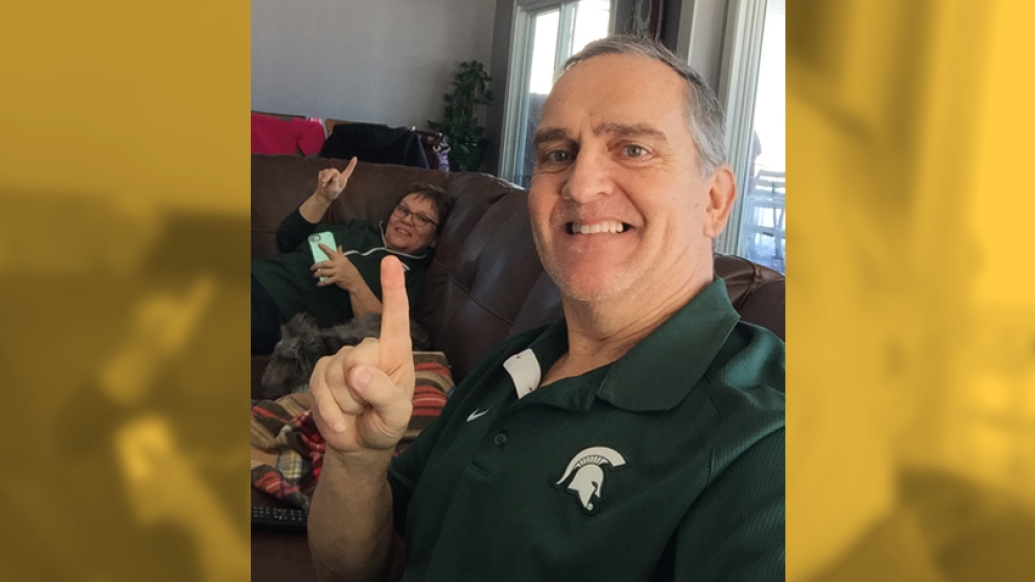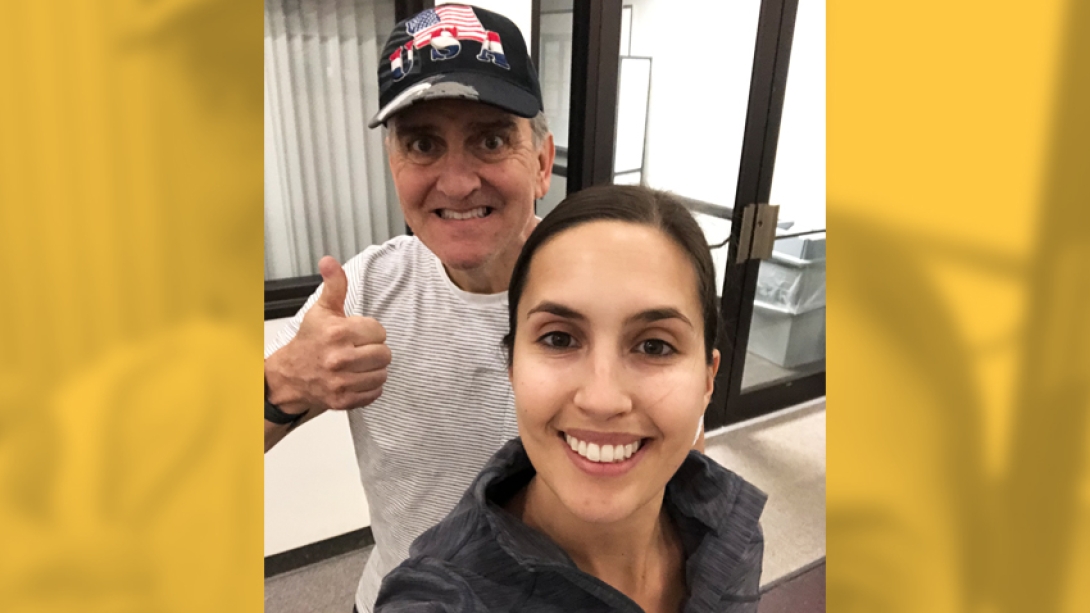A mitral valve repair puts patients back to their original life spans. Hear one man’s advice to others who may want to put off treatment.
1:00 PM
Author |

Norm Jahn has had many professional roles in his 59 years, including Las Vegas police sergeant, Lake Superior State University criminal justice professor and his current position as an academic success coach for college students in need of academic assistance.
LISTEN UP: Add the new Michigan Medicine News Break to your Alexa-enabled device, or subscribe to our daily audio updates on iTunes, Google Play and Stitcher.
But the Sault Ste. Marie, Michigan, resident referred to himself as a "chicken" when it came to any type of surgical procedure.
That is, until he faced open-heart surgery to repair his mitral valve in March. Now, he has a message for others: "Don't be a chicken when it comes to a surgery that can save your life."
Jahn was undergoing a routine exam to clear him for a hip replacement when his primary physician informed him of a heart murmur — something he had never been told about before. A follow-up echocardiogram revealed mitral valve prolapse with regurgitation.
Causes and symptoms of mitral valve prolapse
Mitral valve prolapse occurs when the leaflets of the mitral valve bulge into the left atrium of the heart during the heart's contraction.
As a result, the leaflets can't create a tight seal, causing a backward flow, or regurgitation, of blood into the left atrium. The condition can be life-threatening if the disease progresses into advanced heart issues such as congestive heart failure, atrial fibrillation or pulmonary hypertension.
Symptoms may include a cough, shortness of breath, fatigue, lightheadedness, chest pain and an irregular heartbeat. Mitral valve prolapse can be diagnosed via echocardiogram, transesophageal echocardiogram, X-ray or cardiac catheterization.
MORE FROM MICHIGAN: Sign up for our weekly newsletter
The diagnosis came as a shock to Jahn, who hadn't experienced any symptoms. He was referred to a cardiologist near his home in Michigan's Upper Peninsula who coincidentally was diagnosed with the same condition years earlier.
"My cardiologist said, 'You need to deal with this as soon as possible,'" Jahn says. "She told me about her own successful mitral valve repair at the University of Michigan and recommended I go there for treatment."

Treatment for mitral valve prolapse
Jahn didn't need further convincing. He made an appointment and headed south across the Mackinac Bridge to the University of Michigan Frankel Cardiovascular Center. There, he met cardiac surgeon Steven Bolling, M.D., the same surgeon who had treated his own cardiologist.
The experience turned out to be a positive one, Jahn says.
SEE ALSO: Want a Better Surgical Outcome? 'Train' Like an Athlete
"My wife and I met with Dr. Bolling and his team. Dr. Bolling was very confident. He told me, 'We repair these, and this is how we do it.' I definitely did not want to accept the fact that I had a defective part, but being convinced by Dr. Bolling that it could be fixed was compelling."
Jahn's surgery was scheduled for March 12.
During the open-heart procedure, Jahn also needed his mitral valve chordae repaired. Chordae are thin, cordlike tendons that support the mitral valve leaflets as they open and close to move blood through the heart. When they become stretched or broken, as in Jahn's case, the mitral valve can't close properly.
"The patient had little damage to his heart because we were able to get to him early enough to repair his valve," says Bolling, who has performed thousands of mitral valve repair procedures and stresses the importance of early intervention.
"Unfortunately, some patients come to us with a heart that is already damaged. We can replace their mitral valve, but we can't restore them back to their original timeline the way we can with a mitral valve repair."
Recovering from mitral valve repair procedure
After surgery, Jahn says he experienced only mild discomfort.
"I was up and out of bed the next day and walking around the ICU floor."
SEE ALSO: Recovering from Open-Heart Surgery: 6 Things to Expect
He was released four days later and began his road to recovery, feeling stronger and healthier each day.
"My life trajectory is where it would be if I had never had a mitral valve issue," Jahn is happy to report. He wants to spread the word to others who may be apprehensive about seeking medical attention.
"Men especially can be in denial and delay treatment, which can further complicate things," he says, thankful to have the experience behind him.
Because mitral valve disease can be genetic, Jahn's two daughters and two brothers have been tested, but they show no signs of the disease.
Jahn was recently cleared to go back to work and has begun cardiac rehabilitation.
"My repair happens to be a complete fix, according to Dr. Bolling. He told me to get on with my life," Jahn says, which is exactly what he intends to do.
"I'm glad to still be ticking and kicking!"

Explore a variety of health care news & stories by visiting the Health Lab home page for more articles.

Department of Communication at Michigan Medicine
Want top health & research news weekly? Sign up for Health Lab’s newsletters today!





